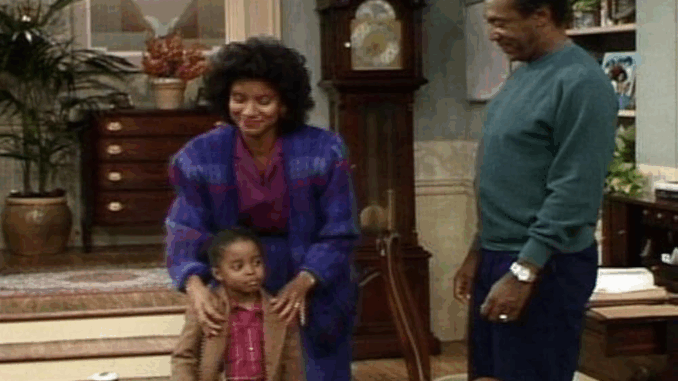
Once hailed as the crown jewel of American television, The Cosby Show was more than just a hit sitcom—it was a cultural force. But behind the hearty laughs and wholesome lessons was a story more complex, more controversial, and ultimately, more tragic than anyone could have predicted.
Breaking Barriers and Building Dreams
When The Cosby Show premiered in 1984, no one was prepared for the seismic shift it would trigger. Set in a stylish Brooklyn brownstone, the Huxtable family—headed by Dr. Cliff Huxtable and attorney Clair Huxtable—became the face of a new American ideal: educated, successful, funny, and Black.
This was television that dared to dream big. No gang violence, no inner-city stereotypes—just jazz records, college talks, sibling squabbles, and love. It redefined what a Black family could look like on screen and made viewers of all backgrounds fall in love with the Huxtables.
A Ratings Juggernaut
With unmatched ratings—often drawing more than 30 million viewers weekly—The Cosby Show didn’t just lead the pack, it was the pack. It catapulted NBC to No. 1, created a Thursday night empire, and inspired a wave of more diverse programming across all networks.
The show won countless Emmys, Golden Globes, and a permanent place in pop culture history. For a generation of Americans, it was not just entertainment. It was comfort, aspiration, and hope.
The Dark Undercurrent
But as history would reveal, there was a darkness brewing beneath the surface. In the 2010s, shocking allegations emerged against Bill Cosby—allegations that would ultimately lead to criminal charges and a prison sentence. The public’s image of the man they once affectionately called “America’s Dad” shattered overnight.
As the scandal unraveled, the legacy of The Cosby Show became a cultural conundrum. Networks dropped reruns. Cast members were torn between pride in their work and horror at their co-star’s actions. Fans were left asking the haunting question: Can you separate art from the artist?
A Complicated Legacy
Today, The Cosby Show sits in a strange place in television history. It remains a groundbreaking masterpiece—still studied in film schools and credited with reshaping the narrative of Black families on TV. But its memory is laced with pain, betrayal, and ethical debate.
Is it possible to celebrate a show that meant so much to so many, knowing what we now know about its creator? That question lingers—unanswered and uncomfortable.
What We Take Away
If The Cosby Show taught us anything, it’s that television is never just about what’s on screen. It’s about who makes it, who watches it, and the stories we choose to carry forward. The laughter may be quieter now, but the impact remains.
Love it or leave it, The Cosby Show changed the game. And like all powerful stories, it leaves us with more questions than answers.